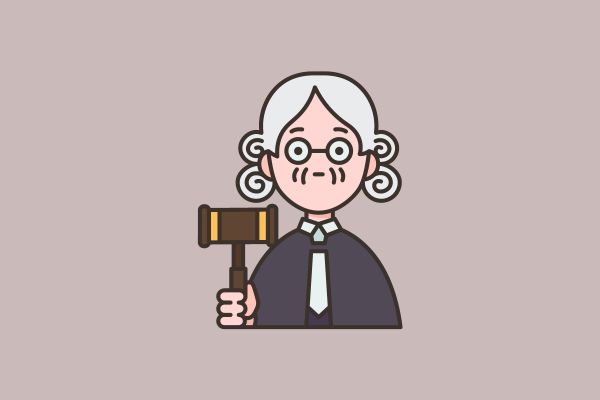How Do Examiners at the District People's Court Perform Their Tasks and Exercise Their Powers?
What are the duties and powers of the reviewers at the district-level People's Court?
Based on Clause 4, Article 93 of the Law on Organization of People's Courts 2014 as follows:
Reviewers
...
4. Reviewers have the following duties and powers:
a) Review the files of cases where the judgments and decisions of the Court have taken legal effect as assigned by the Chief Justice of the Court;
b) Conclude the review and report the review results to the Chief Justice of the Court;
c) Reviewers on the enforcement of judgments assist the Chief Justice of the Court in performing tasks related to the enforcement of judgments under the Court's jurisdiction;
d) Perform other tasks as assigned by the Chief Justice of the Court.
5. Reviewers are responsible before the law and before the Chief Justice of the Court for the performance of their duties and powers; if there is a violation of the law, depending on the nature and severity of the violation, they will be subject to disciplinary action or criminal prosecution according to the provisions of the law.
Reviewers at the district-level People's Court perform the following duties and powers:
- Review the files of cases where the judgments and decisions of the Court have taken legal effect as assigned by the Chief Justice of the Court;
- Conclude the review and report the review results to the Chief Justice of the Court;
- Reviewers on the enforcement of judgments assist the Chief Justice of the Court in performing tasks related to the enforcement of judgments under the Court's jurisdiction;
- Perform other tasks as assigned by the Chief Justice of the Court.
Note: Reviewers at the district-level People's Court are responsible before the law and before the Chief Justice of the Court for the performance of their duties and powers; if there is a violation of the law, depending on the nature and severity of the violation, they will be subject to disciplinary action or criminal prosecution according to the provisions of the law.

What are the duties and powers of reviewers at the district-level People's Court?
What are the policies and regimes for court reviewers?
Based on Article 94 of the Law on Organization of People's Courts 2014, the provisions are as follows:
Regimes and policies for Court Clerks, Reviewers
1. The State has a policy of prioritizing salaries and allowances for Court Clerks and Reviewers.
Salary and allowance regimes are prescribed by the Standing Committee of the National Assembly.
2. Court Clerks and Reviewers are provided with uniforms and title cards. The design of the uniforms and title cards is regulated by the Chief Justice of the Supreme People's Court.
3. Court Clerks and Reviewers are trained in adjudication skills and facilitated for studying and researching to improve their qualifications.
4. Court Clerks and Reviewers are rewarded according to the provisions of the law on emulation and rewards.
Thus, court reviewers have the following policies and regimes:
- The State has a policy of prioritizing salaries and allowances for Reviewers.
Salary and allowance regimes are prescribed by the Standing Committee of the National Assembly.
- Reviewers are provided with uniforms and title cards. The design of the uniforms and title cards is regulated by the Chief Justice of the Supreme People's Court.
- Reviewers are trained in adjudication skills and facilitated for studying and researching to improve their qualifications.
- Reviewers are rewarded according to the provisions of the law on emulation and rewards.
Who has the authority to appoint officials to the ranks of reviewers at the district-level People's Court?
Based on Clause 3, Article 93 of the Law on Organization of People's Courts 2014 as follows:
Reviewers
...
3. The Chief Justice of the Supreme People's Court appoints officials to the ranks of reviewers at the Supreme People's Court and senior reviewers at the high-level People's Courts and Central Military Courts.
The Chief Justice of the high-level People's Courts and the Chief Justice of the Central Military Courts appoint officials to the ranks of reviewers and principal reviewers at the high-level People's Courts and Central Military Courts.
The Chief Justice of the provincial-level People's Court appoints officials to the ranks of reviewers and principal reviewers at the provincial-level People's Courts and at district-level People's Courts, district-level towns, cities under provincial management, and equivalent levels.
The Chief Justice of the Military Region Courts and equivalent levels appoint officials to the ranks of reviewers and principal reviewers at the Military Region Courts and equivalent levels and at Regional Military Courts.
...
Thus, according to the above regulations, the Chief Justice of the provincial-level People's Court has the authority to appoint officials to the ranks of reviewers at the district-level People's Court.
LawNet